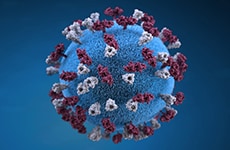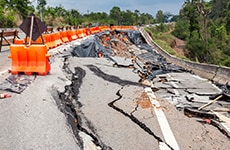Arkansas

- State Population: 3,045,637
- Local Health Departments: 94
- Frequent Public Health Emergencies: Severe Weather, Environmental Contamination, Infectious Disease Outbreaks
- Key Emergency Operations Center Activations:
2020 – COVID-19 Pandemic - CDC PHEP Funding:
FY 2022: $6,662,659
FY 2021: $6,666,795
FY 2020: $6,558,883 - Public Health Crisis Response Funding:
COVID-19 2021 Funding: $18,649,972
COVID-19 2020 Funding: $6,205,347
- Epidemiologists: 2
- Laboratorians: 9
- Nurses: 7
- Planners: 11
- Other: 25*
*Includes IT specialists, administrative staff, statisticians, and other positions
- Community Preparedness
- Public Health Laboratory Testing
- Information Sharing
- Medical Countermeasure Dispensing and Administration
- Emergency Operations Coordination

In Arkansas, the PHEP program trained staff in management and distribution of medical countermeasures to the public when needs arise. In early 2017, an Arkansas man tested positive for measles. Measles is very contagious, spreading through coughing, sneezing, and close personal contact. To prevent additional cases, PHEP-funded health department staff set up a regional vaccination clinic, then identified possibly exposed residents and made sure they were vaccinated. The quick action of PHEP-funded staff prevented more measles cases from occurring in this event.

The New Madrid seismic zone puts Arkansas and neighboring states at risk for a major earthquake. Poison control centers can be critical in an earthquake response, for example in case of water contamination. Arkansas has developed a plan for neighboring states to help support Arkansas poison control centers during a catastrophic disaster. This plan utilized a PHEP-supported partnership with the Arkansas Poison Control Center, as well as the Emergency Management Assistance Compact (EMAC), a mutual aid agreement between states and territories. Other states have since adopted a similar model to support one another’s poison control centers during a major emergency.